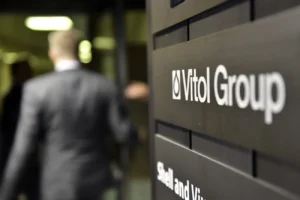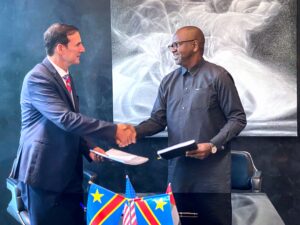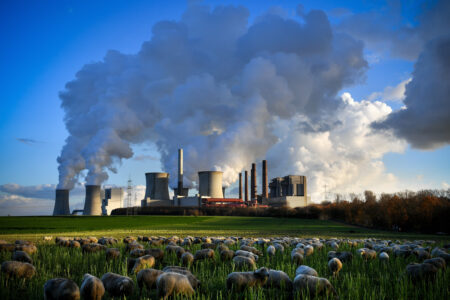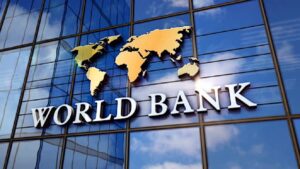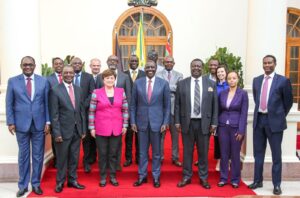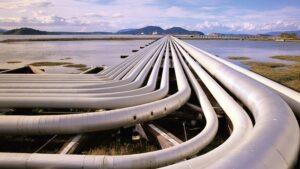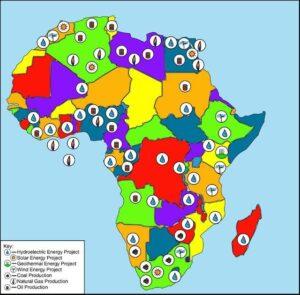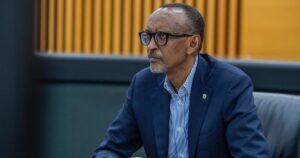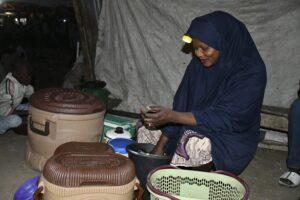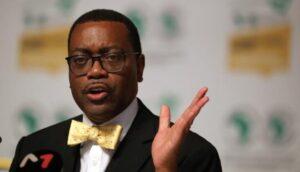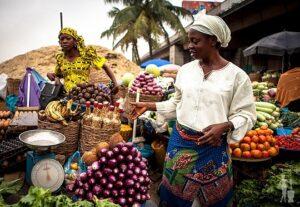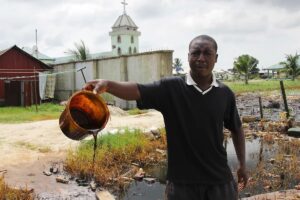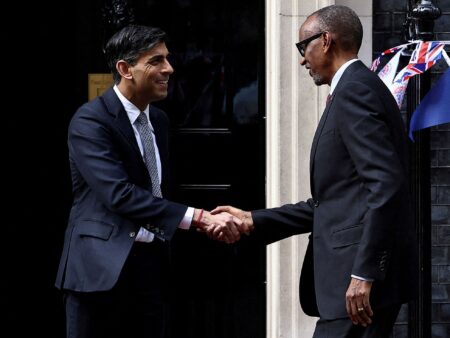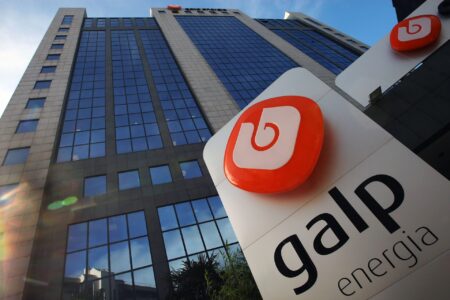- AmCham Summit kicks off, setting course for robust future of US-East Africa trade ties
- Why the UN is raising the red flag on the UK-Rwanda asylum treaty
- Portugal’s Galp Energia projects 10 billion barrels in Namibia’s new oil find
- Wärtsilä Energy offers tips on how Africa can navigate energy transition and grid reliability
- Powering Africa: Africa’s Path to Universal Electricity Access
- Global investment trends at AIM Congress 2024: a spotlight on the keynote speakers
- South Africa’s deepening investment ties in South Sudan oil industry
- Agribusiness could drive Africa’s economic prosperity
Economic Growth
- New hotel room developments in Kenya have dropped.
- With continued signing activity (19 hotels with about 5,200 rooms in 2023) Egypt now accounts for 28 per cent of the total pipeline.
- When it comes to hotels under construction, Marriott International leads the way, with 138 hotels (15,011 rooms) currently being built.
Kenya has ranked seventh in Africa among the countries with the highest number of hotel room developments by international hotel chains, a drop from position five in 2022.
This is according to the latest survey by Lagos-based W Hospitality Group, in association with the Africa Hospitality Investment Forum (AHIF). From the survey, Kenya has 31 hotels with a total of 4,268 rooms on the pipeline with an average room size in these hotels is approximately 138 square feet.
North Africa continues to dominate the planned supply, with Morocco and Egypt together comprising almost 31 per cent of the …
- The Uganda National Oil Company (UNOC) is directly importing petroleum products from Vitol Bahrain, aiming to reduce reliance on Kenyan firms and mitigate high fuel prices.
- UNOC’s direct importation and sale of fuel to OMCs in Tanzania and Uganda is a significant step towards fostering stronger regional ties, promoting economic growth, and ensuring energy security.
Uganda National Oil Company (UNOC) has started the sale of petroleum products to oil marketing companies in both Uganda and Tanzania.
This is part of a broader strategy to test the waters before UNOC embarks on a direct importation agreement with the global oil titan, Vitol Bahrain. This maneuver signals a new era in East Africa’s energy dynamics, especially following a cooling of relations between Uganda and Kenya over fuel supply mechanisms.
Breaking New Ground: Uganda National Oil Company Direct Importation Deal
For years, Uganda’s fuel supply chain was heavily dependent on Kenyan OMCs. However, …
- The joint development of the Green Giant Project will expedite the construction of the first 200MW phase of the investment.
- Mini-grids account for more than half of all new connections in DRC.
- The agreement represents a significant milestone in the collaborative efforts between SkyPower, AFC, and the DRC.
The Democratic Republic of Congo (DRC), Africa Finance Corporation (AFC) and SkyPower Global have entered into a joint development agreement for the first phase of SkyPower’s Green Giant project in the mineral-rich country.
The move is meant to promote the use of renewable energy in the Eastern African state. This 200MW Phase one is a crucial step towards achieving the landmark 1,000MW Solar Power Purchase Agreement (PPA) signed between SkyPower and the DRC’s state-owned utility, Société Nationale d’Electricité (SNEL).
The partnership brings together SkyPower’s extensive experience in developing large-scale solar projects and AFC’s successful track record of de-risking and funding well-structured power …
Africa has been hailed as the next frontier in the provision of global oil and natural gas resources, especially now in the wake of the ongoing Russia-Ukraine war.
This crisis has not only altered the global energy landscape, but also instigated an inflation in gas prices, given the former’s position in the hierarchy of major global producers. As sanctions continue to soar, Europe has embarked on a quest to find contingency energy supplies, as it seeks to minimize its dependency on Russia; which has already cut off gas supplies to countries like Finland, Poland and Bulgaria, over energy payment disputes.
Consequently, Africa’s gas resources have gained a newly found prominence, pertinently by the European Union (EU); owing to the continent’s rich endowment of oil and deep gas reserves. The mounting global demand for gas, has been pushing international energy companies to reconsider African projects. The numerous ongoing and upcoming oil …
As Africa’s role in the global economy continues to garner prominence, it’s imperative for the continent to seal the gaping hole in its power supply.
Lack of universal power access remains a major roadblock that has retrogressed industrialization and socio-economic development. Statistics from the World Bank indicate that Africa remains the least electrified region in the world, with 568 million people lacking access to electricity.
The Bretton Woods institution, further notes that the Sub-Saharan Africa’s share of the global population without electricity, jumped to 77 per cent in 2020 from 71 per cent in 2018, whilst most regions saw declines in their share of access deficits. It has become a Hobson’s choice for African governments to prioritize the power sector, which is the epicenter of industrialization, working towards Goal 7 of the UN SDGs; which advocates for universal access to affordable, reliable and modern electricity services.
Currently, Africa’s power is …
- Rwanda will receive two loans amounting to $180 million from the African Development Bank
- The funds will support a major energy project that will extend electricity access to rural areas and reduce greenhouse gas emissions
- It entails the construction of over 1,000 km of medium voltage and 3,300 km of low voltage lines to boost last-mile access
- The project is expected to connect 77,470 households to the electricity network for the first time and connect 75 schools, eight health centres and 65 administration centres
Rwanda will receive two loans amounting to $180 million from the African Development Bank (AfDB) to co-finance a major energy project that will extend electricity access to rural areas and reduce greenhouse gas emissions.
In a statement seen by The Exchange Africa, the AfDB said the new funding follows the approval for $84.2 million made in May 2021 for the same project.
According to the lender, …
In March 2022, while trying to clarify the power situation in Nigeria, TCN reiterated that out of 23 gas-powered stations with a combined capacity of more than 10,000 MW, at least 14 were either shut down or operated at reduced capacity. Two in three power stations have either halted operations or operating below par. It is projected that Nigerians privately generate up to 40,000 MW to address the grid deficit.
According to TCN spokeswoman Ndidi Mbah, the power companies attribute this trend to various factors, including scheduled and unscheduled maintenance, faults in generating units of generating companies, and poor gas supply. However, all these factors cause power generating companies to limit their generating capacities or halt generation altogether. However, the challenges appear to run deeper.
All Progressives Congress Party, after assuming office in 2015, alleged that many of the power companies had been sold by the former People’s Democratic Party …
- African Development Fund has approved $5.5 million technical assistance grant to support projects Eastern Sahel region countries of Djibouti, Eritrea, Ethiopia and Sudan
- The East Africa Regional Energy Project will be financed through the ADF-15 Regional Public Good window of the African Development Fund, the concessional arm of the African Development Bank Group
- It will develop technical studies for regional solar parks and associated battery storage near regional energy inter-connectors, high-voltage cables that connect the electricity systems of neighbouring countries
The African Development Fund has approved a $5.5 million technical assistance grant to begin the roll-out of the flagship Desert to Power initiative in the Eastern Sahel region countries of Djibouti, Eritrea, Ethiopia and Sudan.
Dubbed the East Africa Regional Energy Project, it will be financed through the ADF-15 Regional Public Good window of the African Development Fund, the concessional arm of the African Development Bank Group.
The project will …
On a broader scale, the United Nations argued that sub-Saharan Africa loses $95 billion yearly because of the gender gap in the labour market.
Multiple entities are recording the contribution of women to the Tanzania economy, including the National Bureau of Statistics (NBS).
The NBS argue that 65 per cent of farmers are women and women head 33 per cent of households; political processes that promote women are mounting up over the decades.
Around 36 per cent of the national parliamentarians are women—however, legislative and financial barriers, as well as gender norms, hinder advancement.
On the other side of the fence, World Bank argues that Tanzania has made vital strides in expanding women’s economic opportunities over the past two decades.
“The female labour-force participation rate rose from 67 per cent in 2000 to 80 per cent in 2019, well above the average of 63 per cent for sub-Saharan Africa and …






